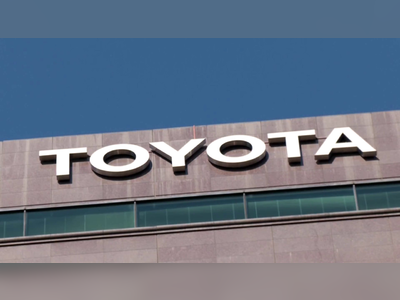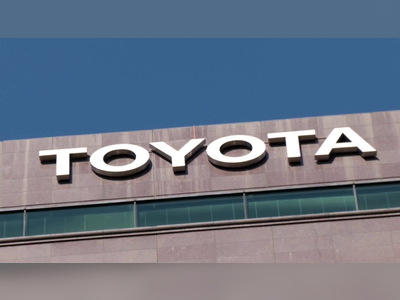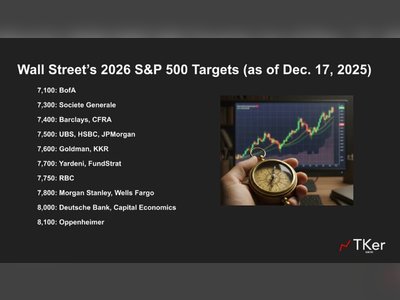Trump’s Global Gaffes: Internal Strife Among Allies Threatens Cohesion
As President-Elect Trump prepares to take office, rifts among his supporters over alliances with European right-wing populists underscore tensions within his coalition.
In the lead-up to United States President-elect Donald Trump's inauguration, a notable schism has emerged within his coalition of right-wing proponents.
The discord centers not on domestic issues, but rather on international alliances with European populists.
The populist right in Europe, frequently characterized by its incendiary rhetoric and rejection of traditional diplomacy, finds itself at the heart of a debate among Trump's allies.
Prominent figures within Trump's circle are divided over which European leaders should be embraced as allies.
Steve Bannon, a former White House adviser known for his ideological influence in Trump's previous administration, has dismissed certain European figures, claiming divergence in principles even among fellow right-wingers.
In a recent interview with Semafor, Bannon went as far as to criticize Elon Musk, a billionaire with substantial influence on the global stage, accusing him of financial entanglement with China.
Despite this, Bannon later acknowledged Musk's value in furthering the populist agenda across Europe, labeling him a potential 'weapon' in the political struggle.
A particularly contentious figure in this debate is Italian Prime Minister Giorgia Meloni.
While Musk has expressed admiration for Meloni, Bannon and others in Trump's sphere have accused her of straying from populist ideals, citing her support for continued engagement in the Ukraine conflict as evidence of leftist tendencies.
The internal disputes extend beyond ideological lines to touch upon legal entanglements.
Bannon's criticism of Meloni is partially rooted in a stalled project involving a monastery that his allies aim to convert into a political school for populist leaders.
Simultaneously, Musk's stance has taken an unpredictable turn, marked by his recent critique of Reform UK leader Nigel Farage.
Musk's call for Farage's replacement, which he claimed stemmed from the latter's failure to support anti-Islam campaigner Tommy Robinson, reflects the volatile nature of alliances within the populist movement.
In the broader context, these skirmishes among Trump's allies suggest potential challenges for his second term, especially regarding foreign policy.
European leaders are bracing for a possible repeat of Trump's first term challenges, marked by strained NATO relations and fluctuating stances on various international issues.
For Europe's populist parties, these developments signal potential shifts in their political landscapes.
As Trump and his entourage continue to wield influence through both rhetoric and strategic alliances, their involvement with European politics could significantly alter the trajectory of right-wing movements across the continent.
Navigating this landscape will require astute diplomacy as European nations attempt to balance their domestic agendas with the volatile dynamics presented by Trump's incoming administration and its unpredictable alliances.
The discord centers not on domestic issues, but rather on international alliances with European populists.
The populist right in Europe, frequently characterized by its incendiary rhetoric and rejection of traditional diplomacy, finds itself at the heart of a debate among Trump's allies.
Prominent figures within Trump's circle are divided over which European leaders should be embraced as allies.
Steve Bannon, a former White House adviser known for his ideological influence in Trump's previous administration, has dismissed certain European figures, claiming divergence in principles even among fellow right-wingers.
In a recent interview with Semafor, Bannon went as far as to criticize Elon Musk, a billionaire with substantial influence on the global stage, accusing him of financial entanglement with China.
Despite this, Bannon later acknowledged Musk's value in furthering the populist agenda across Europe, labeling him a potential 'weapon' in the political struggle.
A particularly contentious figure in this debate is Italian Prime Minister Giorgia Meloni.
While Musk has expressed admiration for Meloni, Bannon and others in Trump's sphere have accused her of straying from populist ideals, citing her support for continued engagement in the Ukraine conflict as evidence of leftist tendencies.
The internal disputes extend beyond ideological lines to touch upon legal entanglements.
Bannon's criticism of Meloni is partially rooted in a stalled project involving a monastery that his allies aim to convert into a political school for populist leaders.
Simultaneously, Musk's stance has taken an unpredictable turn, marked by his recent critique of Reform UK leader Nigel Farage.
Musk's call for Farage's replacement, which he claimed stemmed from the latter's failure to support anti-Islam campaigner Tommy Robinson, reflects the volatile nature of alliances within the populist movement.
In the broader context, these skirmishes among Trump's allies suggest potential challenges for his second term, especially regarding foreign policy.
European leaders are bracing for a possible repeat of Trump's first term challenges, marked by strained NATO relations and fluctuating stances on various international issues.
For Europe's populist parties, these developments signal potential shifts in their political landscapes.
As Trump and his entourage continue to wield influence through both rhetoric and strategic alliances, their involvement with European politics could significantly alter the trajectory of right-wing movements across the continent.
Navigating this landscape will require astute diplomacy as European nations attempt to balance their domestic agendas with the volatile dynamics presented by Trump's incoming administration and its unpredictable alliances.
AI Disclaimer: An advanced artificial intelligence (AI) system generated the content of this page on its own. This innovative technology conducts extensive research from a variety of reliable sources, performs rigorous fact-checking and verification, cleans up and balances biased or manipulated content, and presents a minimal factual summary that is just enough yet essential for you to function as an informed and educated citizen. Please keep in mind, however, that this system is an evolving technology, and as a result, the article may contain accidental inaccuracies or errors. We urge you to help us improve our site by reporting any inaccuracies you find using the "Contact Us" link at the bottom of this page. Your helpful feedback helps us improve our system and deliver more precise content. When you find an article of interest here, please look for the full and extensive coverage of this topic in traditional news sources, as they are written by professional journalists that we try to support, not replace. We appreciate your understanding and assistance.











